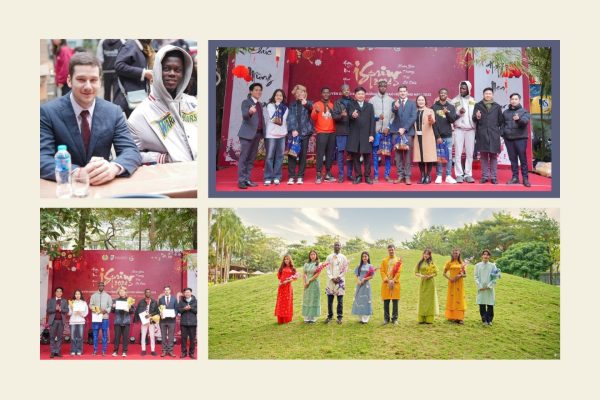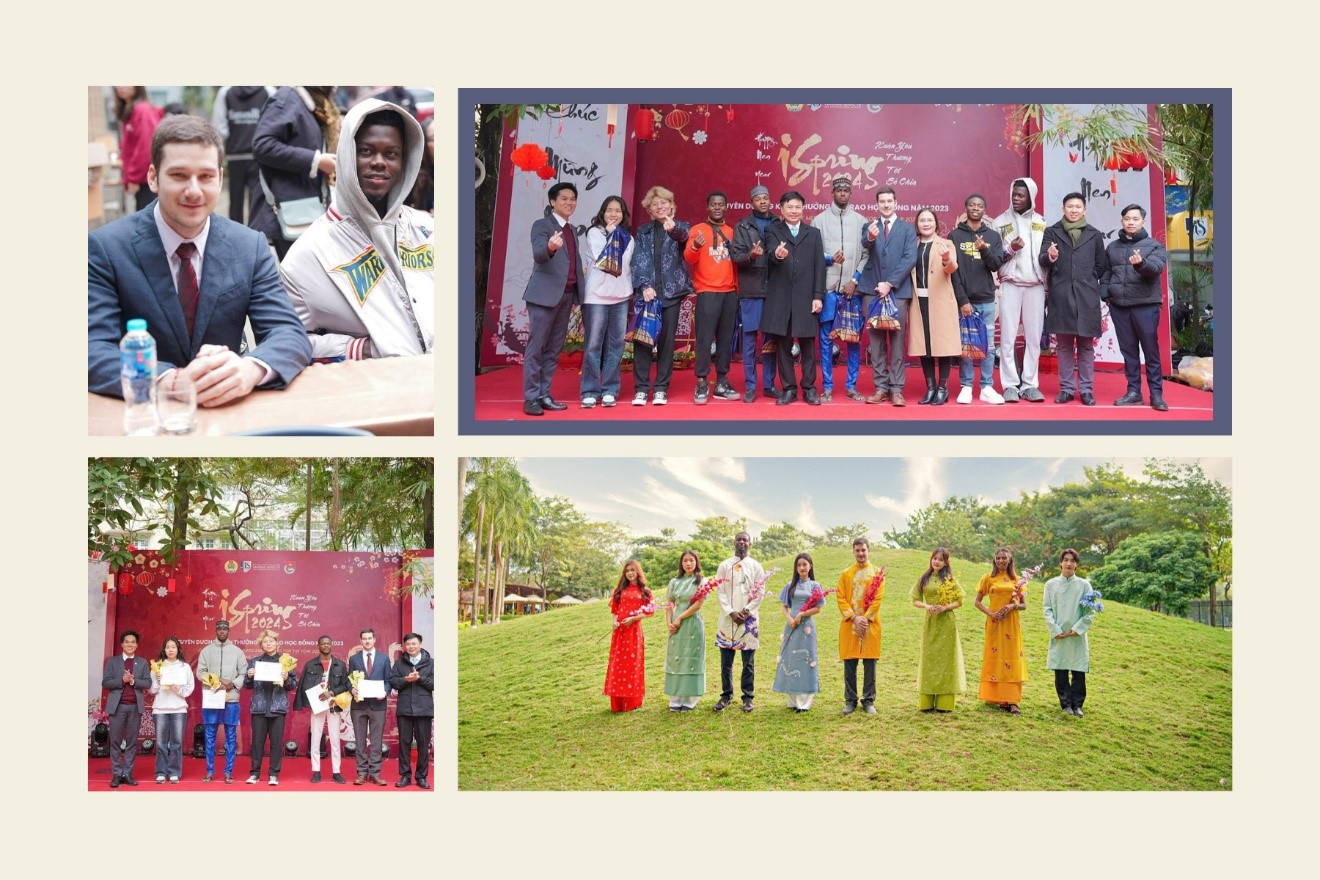According to the Ministry of Education and Training, international students studying in Vietnam are mainly at university level and short-term courses, most of them are international students outside the Agreement. Determining the attraction to this target group of learners will improve the quantity and quality of international enrollment, as well as international training programs.
Why do more than 45,000 international students choose Vietnam to study abroad?
According to a report by the Department of International Cooperation, in the period 2016-2021, Vietnam has 155 educational institutions receiving and training more than 45,000 foreign students from 102 countries and territories.
To attract international students, educational institutions must think about two factors: competitive tuition and university rankings. If not under a scholarship/agreement or short-term exchange, self-funded international students who decide to come to Vietnam to participate in full-time specialized training will really pay attention to the quality of training and opportunities. employment after graduation.
Professor and Doctor of Science Nguyen Dinh Duc, Former Head of the Training Department of Hanoi National University – an educational institution with international students from 74 countries, affirmed that “the school’s rankings are increasing day by day, and the university’s qualifications are increasing.” increasingly valuable”.
In addition to the school’s overall ranking, students are also interested in the rankings of fields and majors. Hanoi National University has three ranked field groups: Engineering & Technology ranked 386, Natural Sciences ranked 401-450 and Social Sciences and Management (Social Science & Management) ranked 451-500.
The International School is an “International Hub” of Hanoi National University that receives and trains international students. Notably, 100% of the University’s international students are not subject to studying abroad under the Agreement, they are all self-sufficient in pursuing university studies in economics, engineering, and technology; coming from 20 countries, 4 continents in the period 2016 – 2023, especially the majority of international students of the University have nationality in countries with advanced education: Switzerland, Spain, Korea, Philippines , …
The multi-dimensional attraction comes from a comprehensive training program and diverse scholarship forms
Improving students’ global citizenship capacity (fluent in using languages and foreign languages) and digital competency (competent use of digital tools to improve the quality of work) is not only demonstrated Through a 100% training program in English, the International School builds a training program aimed at developing students’ thinking capacity, practical ability and self-study ability, considering English and technical skills. Soft skills and entrepreneurship are complementary but very important learning outcomes for learners. Lecturers of the programs are mainly highly qualified foreign lecturers or Vietnamese lecturers with foreign degrees, not only good at professional knowledge but also very knowledgeable about social fields.
In addition, international students have short-term study exchanges at many prestigious universities in Japan, Korea, Taiwan, Singapore, Thailand, Malaysia, … increasing opportunities to work, exchange, and study. Ask international students from the University’s network of more than 40 partner universities around the world and have the opportunity to practice and experience at large companies and corporations located in Vietnam; Participate in startup projects through cultural and specialized clubs, academic and career consulting service systems, Alumni networks, activities of the International School Youth Union,…
At the International School, the “equality for all nationalities” regime has been established, without distinction between Vietnamese and foreign students, they are all “cultural ambassadors” and bridges of friendship. Corporate activities are designed on the basis of careful consideration of multinational factors, using the English language, respecting beliefs, religions and indigenous cultural rituals that the “cultural ambassadors” ” bring. In addition to participating in union activities, the University’s international students can also participate in the Organizing Committee to directly propose, build, and organize extracurricular programs, experiential activities, exchanges, and more. Learn about the cultures of countries around the world.
The school has a scholarship policy from the school’s autonomous funding source to educate all talented students regardless of nationality. For international students, 100% of successful admissions receive a free scholarship for the first semester of the first year. At the same time, foreign students have the opportunity to win Vietnam scholarships (100% tuition exemption for the entire course) and Hanoi scholarships (50% tuition exemption) with no limit on the number of scholarship. This means that 100% of international students studying at the International School enjoy preferential tuition policies.
Many international students wish to further their postgraduate studies at the International School and stay in Vietnam to work
Regardless of short-term study exchanges, international students of the International School place full trust in participating in full-time specialized training, bringing their knowledge, skills, experience, and experience after graduation. After graduating, he returned to his hometown to start a career and get rich – Associate Professor, PhD. Le Trung Thanh, Principal of the International School, has shared many times at educational forums at home and abroad.
After full-time training at the International School, many international students wish to stay in Vietnam to live and work. “While I am open to explore job opportunities both in Vietnam and my homeland after graduation, my current intention is to stay in Vietnam to work. I am deeply committed to contributing to Vietnam’s development and believe that my skills and experiences can be most effectively utilized in this context. Regarding job opportunities after graduation, I am optimistic about the prospects, especially in the field of education. Vietnam has a growing demand for qualified English teachers, and I am confident that my education and experiences will position me well to secure meaningful employment in this area” – Marius Kach Andre, Nationality: Swiss, English Language student.
Not only participating in bachelor’s degree training, international students also have the need for advanced postgraduate study after receiving a bachelor’s degree: “I am considering pursuing postgraduate training at VNU-IS or other reputable institutions after graduating. Continuing my studies at the postgraduate level will allow me to further specialize in my field, deepen my expertise, and enhance my career prospects. Moreover, I am passionate about lifelong learning and believe that ongoing education is essential for staying updated with the latest developments in my field and contributing meaningfully to society. Therefore, pursuing postgraduate studies aligns with my long-term goals of professional advancement and personal fulfillment” – Marius Kach Andre, Nationality: Swiss, student majoring in English.

